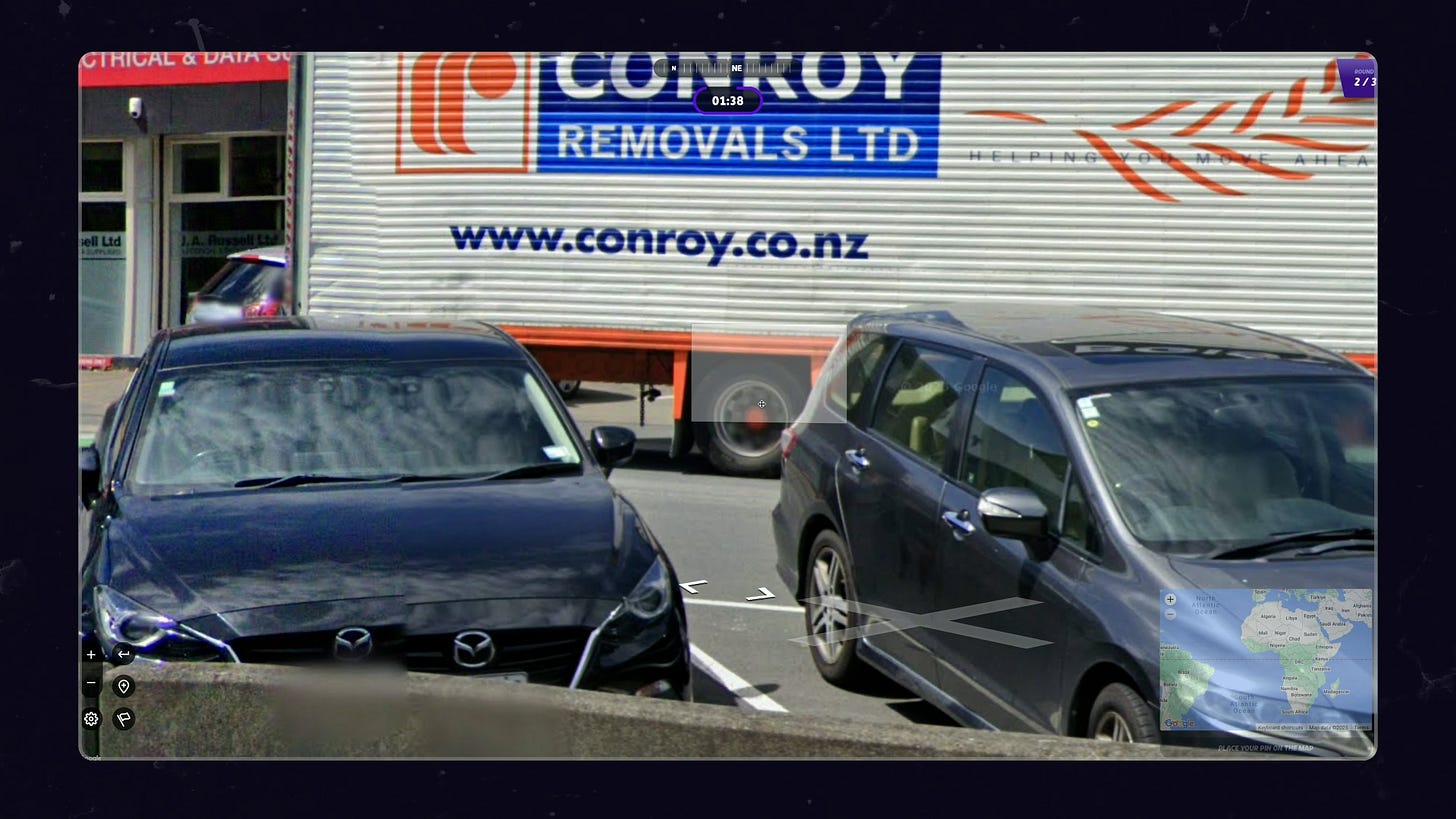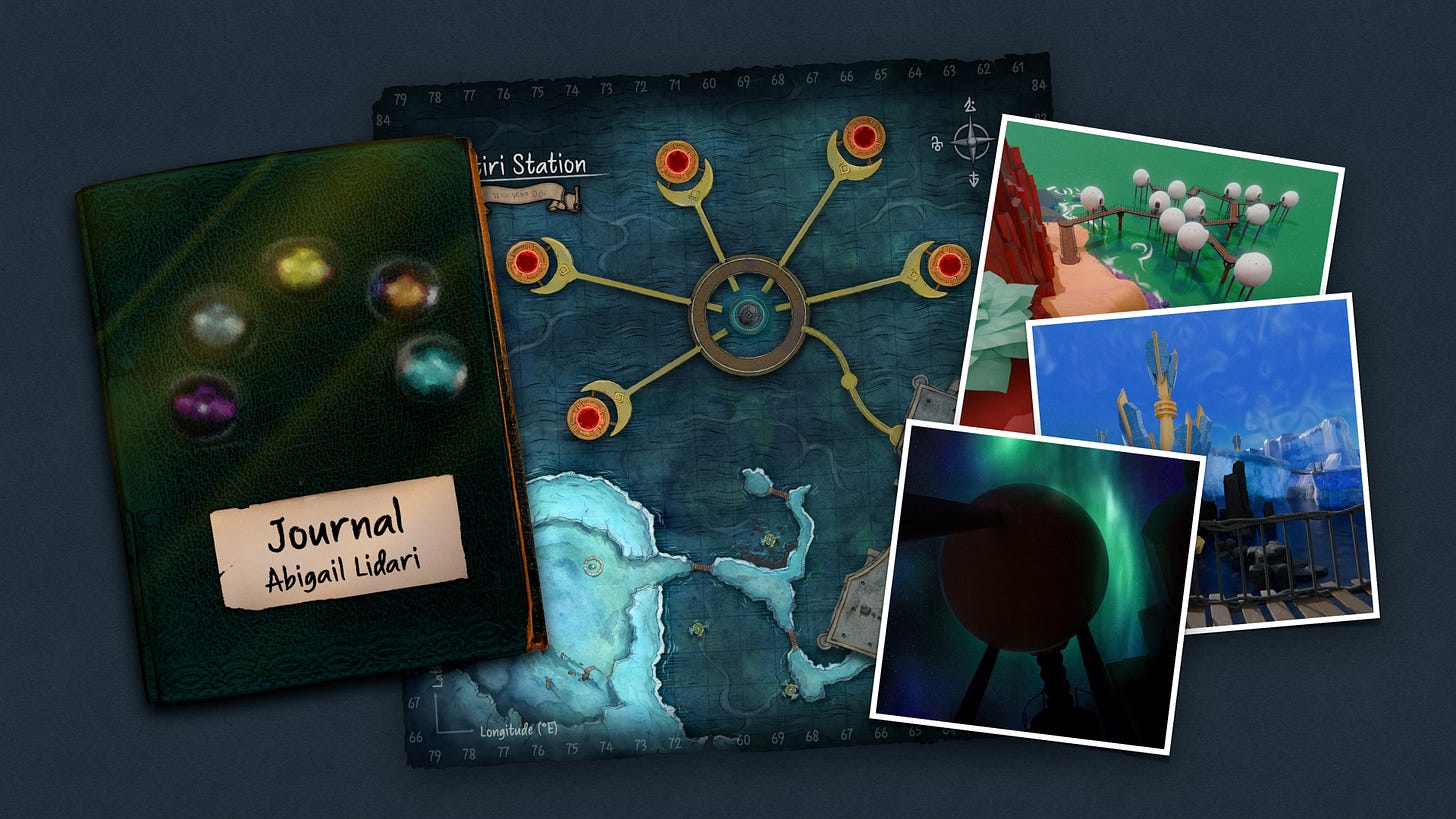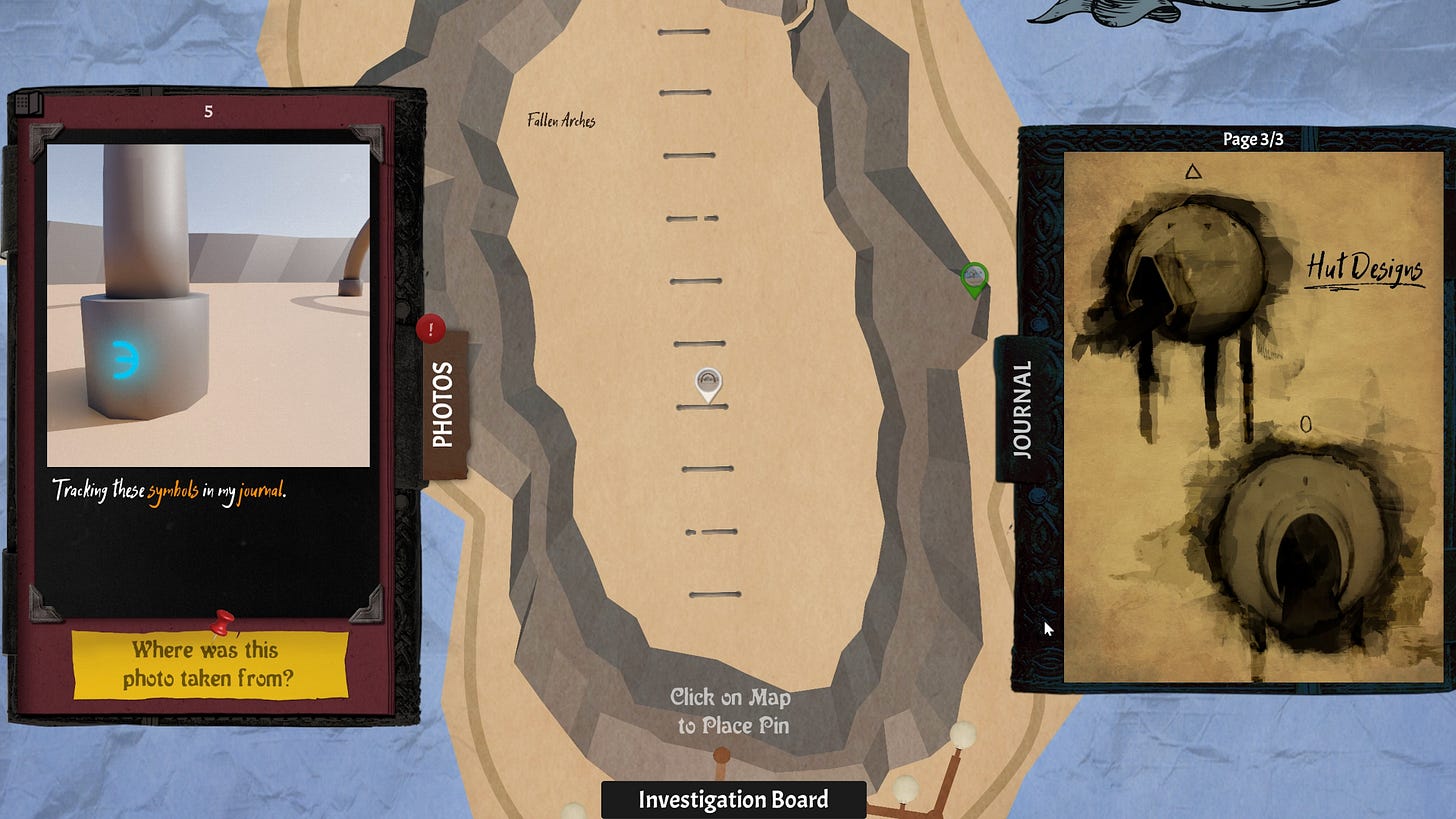A detective demo inspired by Geoguessr
Recommending Locator
Okay, so you have probably played Geoguessr. Or you've someone play Geoguessr on YouTube.
It's the game where you're dropped onto some random point on Earth and get to look around, from street level, through the eyes of a Google Street View car. Then you've got to figure out where the heck you are and place your guess on the world map.
The closer you are, the higher you score.
But if you actually want to know where you are, you're going to need to look for clues. Like - are the cars driving on the right hand side of the road, or the left? Is the sun in the north or the south?
What do the houses look like? The street signs? Bollards? Road markings? Electricity poles?
Perhaps you can find some text - what language is that? Can you spot a domain name? A phone number? Ring them up, ask where they are! No, don't do that. Why would you do that, that's so weird.
Anyway - getting good at Geoguessr almost feels like being a detective.
You need to hunt down clues and make logical deductions. And you get to have those eureka-style "aha!" moments. And the part where you submit your guess... and then get told if you were right or wrong - is, well, it's pretty similar to pointing out a killer in a murder mystery game.
And so that was the idea behind Locator - an ingenious upcoming game that turns Geoguessr into a sci-fi detective story.
Oh, this is Weekender by the way. My semi-frequent series where I recommend an interesting indie game for you to play this weekend. And I guess also demos, now? Eh, why not!
Okay - so the game is about Abigail Lidari, an archeologist who has touched down on a strange alien planet... and has now gone missing.
All you've got to go on is a journal, a map of the planet, and a collection of photographs that Abigail snapped along her journey. And so you've got to carefully study these snaps and look for clues that might help you pinpoint the archeologist's location when she took the photo.
Things start out easy enough. You've got three photos of the crash site, with prominent images of landmarks like a tree and an obelisk. And so by triangulating their position you can reverse engineer the location of the camera.
Just like Geoguessr, you plop your guess on the map with a pin. But unlike the addictive web game you won't get an immediate response or a score. Instead the game takes obvious influence from Return of the Obra Dinn - and will only confirm your pins when you put in three correct answers. It's a nice way to cut down on brute force guesswork.
But from there, things get more complicated. You'll soon find photos that can't be decoded simply by looking at the map. Perhaps because they are indoors. Or because they feature generic landmarks that are repeated multiple times - like these huts on stilts.
So to solve those, you'll need to cross reference the information in Abigail's journal.
This thing is packed with info on stuff like constellations, sailing routes, diagrams, and ways to work out your heading, latitude, or longitude. You'll need to do maths and astronomy and process of elimination.
In this way, it brings in the sort of deduction gameplay seen in other excellent detective games like last year's Rise of the Golden Idol and the very recently-released The Roottrees are Dead... which probably deserves a Weekender episode of its own. It's very good.
Anyway - I don't want to spoil any specific puzzles. But suffice to say, even this hour-long demo was packed with moments of frantic note-taking, puzzle solving, and exciting moments where I felt like a genius.
I also dug the general vibe of the game. I spoke to developer Empty Exhibit Games who said that the alien planets were largely inspired by Myst and Riven - they said…
"I was captivated by Myst as a child, I loved discovering the strange structures and mechanical devices of that world. I did my best to capture some of that same magic as I've been creating landmarks and structures for this game."
And while the plot is barebones - that's for a reason. Early versions of the game packed the journal with diary pages which were meant to explore Abigail's character and her emotional journey. But playtesters just weren't interested in these and found them to be an annoying distraction from the pages that actually helped you solve the puzzles
So the developer took inspiration from Outer Wilds - another alien archeology game, but one where the narrative and the puzzles are always perfectly intermingled. Almost every scrap of text is both telling a story and giving you clues.
And so in Locator, the photo captions and journal pages are primarily for puzzle solving.. but they also give you an insight on how Abigail felt when exploring the island.
Anyway - that's enough from me.
The Locator demo is available on Steam, right now, for free. Make sure you Wishlist the game if you're interested in playing more. But whatever the case I'll be sure to let you know when the full thing comes out. Whenever that might be.




